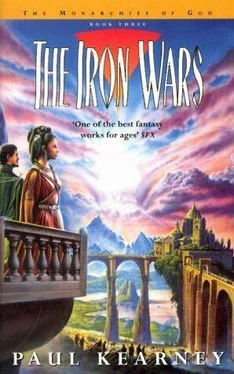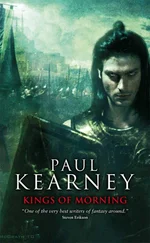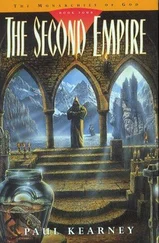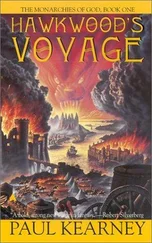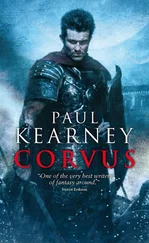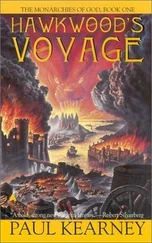Paul Kearney - The Iron Wars
Здесь есть возможность читать онлайн «Paul Kearney - The Iron Wars» весь текст электронной книги совершенно бесплатно (целиком полную версию без сокращений). В некоторых случаях можно слушать аудио, скачать через торрент в формате fb2 и присутствует краткое содержание. Жанр: Фэнтези, на английском языке. Описание произведения, (предисловие) а так же отзывы посетителей доступны на портале библиотеки ЛибКат.
- Название:The Iron Wars
- Автор:
- Жанр:
- Год:неизвестен
- ISBN:нет данных
- Рейтинг книги:4 / 5. Голосов: 1
-
Избранное:Добавить в избранное
- Отзывы:
-
Ваша оценка:
- 80
- 1
- 2
- 3
- 4
- 5
The Iron Wars: краткое содержание, описание и аннотация
Предлагаем к чтению аннотацию, описание, краткое содержание или предисловие (зависит от того, что написал сам автор книги «The Iron Wars»). Если вы не нашли необходимую информацию о книге — напишите в комментариях, мы постараемся отыскать её.
The Iron Wars — читать онлайн бесплатно полную книгу (весь текст) целиком
Ниже представлен текст книги, разбитый по страницам. Система сохранения места последней прочитанной страницы, позволяет с удобством читать онлайн бесплатно книгу «The Iron Wars», без необходимости каждый раз заново искать на чём Вы остановились. Поставьте закладку, и сможете в любой момент перейти на страницу, на которой закончили чтение.
Интервал:
Закладка:
Weapons were sheathed, and the hall began to glimmer with talk, speculation, surmise. Avila clapped the narrow-eyed Siward on the shoulder.
“My friend, that was as good as a play. I’m only sorry you did not have the opportunity to spill his entrails on the marble.” Siward said nothing, but picked up his arquebus, kicking aside the other, still-senseless Knight as he did so. No one dared interfere.
An Inceptine appeared, heavy-jowled and glabrous. “I am Monsignor Alembord, head of His Holiness’s household. Perhaps you will be so good as to explain yourselves.”
“We did not travel here through blizzards and wolves and marauding armies to bandy words with a lackey!” Avila cried. He was obviously enjoying himself. “Admit us to His Holiness’s presence at once. We bear tidings that must be heard by the Pontiff alone. Thwart us at your peril!”
“For God’s sake, Avila,” Albrec murmured, helping the Knight Siward had knocked down to his feet.
Monsignor Alembord seemed torn between alarm and fury. “Wait here,” he snapped at last, and jogged off with the unfortunate Antillian in tow.
“You should have been a passion-player, Avila,” Albrec told his friend wearily.
“I’m sick of being abused, especially by fat insects like that Inceptine. It’s time to stop sneaking around. Things need to be stirred up a little. Ramusio’s beard, do they think they tore down the Church only to build a doppelganger in its place? Wait until the Pontiff sees the tale you carry, Albrec. If he’s a decent man, as that fellow Corfe seemed to think he is, then by the blood of God we’ll make sure he shakes the world with it.”
PART TWO
INTO THE STORM
You must never drive your enemy into despair. For that such a strait doth multiply his force, and increase his courage, which was before broken and cast down. Neither is there any better help for men that are out of heart, toiled and spent, than to hope for no favour at all.
RabelaisTWELVE
It was the thunder of the distant guns that drew them. It muttered beyond the horizon like the anger of some subterranean god. Artillery, by battery, and the rolling crackle of arquebus fire. Morin dismounted and laid his ear to the ground, listening to the unseen engagement. When he straightened there was a look of something like wonder on his face.
“Many, many men, and many big guns,” he said. “And horses, thousands of horses. War echoes through the earth.”
“But who is it?” Andruw asked. “Martellus or Barbius? Or both?”
The other members of the party, Corfe included, looked at Joshelin. The grizzled Fimbrian sat upon a restive Torunnan destrier looking tired and irritable. He was not a natural-born horseman, to put it mildly.
“It will be the marshal,” he said. “We have not gone far enough north to intercept Martellus. We must be forty leagues from the dyke still. I would wager that Martellus’s host is two or three days’ march away.”
The little knot of horsemen were half a mile in advance of the main body, though both Ebro and Marsch were detached for now, leading squadrons out on the flanks and destroying any Merduk skirmishers they came across. Corfe intended the approach of his men to remain a secret. As at Staed, if he could not have numbers on his side, he’d best have surprise.
“How far, Morin?” Corfe asked his interpreter.
“A league, not more.”
Thirty minutes, perhaps, if he were not to wind the horses for a charge. He would have to leave at least one squadron with the mules… Corfe’s mind raced through the calculations, adding up the risks and probabilities. He needed to make a reconnaissance, of course, but that would eat up valuable time. A reconnaissance in force, then? Too cumbersome, and it would throw away surprise. With his numbers, he needed to pitch into the Merduk flank or rear for preference. A head-on charge into a large army’s front would simply be throwing his men’s lives away.
“I’m going forward,” he said abruptly. “Morin, Cerne, come with me. Andruw, take over the command. If we’re not back in two hours, consider us dead.”
The roar of battle grew as they advanced. It ebbed and flowed, dying away sometimes and rising up again in a furious barrage of noise that seemed to make the very grass quiver. The three horsemen began to see stragglers running singly or in small groups about the slopes of the hills ahead, Merduks by their armour. Every army shed men as it advanced, like a dog shedding hair. Men grew footsore or exhausted or bloody-minded, and even the most diligent provost guard could not keep them all in the ranks.
Finally they rode up the side of one last bluff, and found themselves looking down like spectators in a theatre upon the awesome spectacle of a great battle.
The lines stretched for perhaps two miles, though their length was obscured by toiling clouds of powder smoke. A Fimbrian army was at bay there, fighting for its life. Corfe could see the fearsome bristle of a pike phalanx, eight men deep, and on its flanks thin formations of arquebusiers. But there were other western troops present also. Torunnan cuirassiers, perhaps three hundred of them, and several thousand sword-and-buckler men and arquebusiers intermingled, struggling against immense odds to extend their flanks. So Martellus was here. The dyke garrison must have marched more quickly than Joshelin had given it credit for. They had joined up with the Fimbrians, and for the first time in history were fighting shoulder to shoulder with their ancient foes. So few of them. Martellus had lost over half his command.
The Merduk host they were pitted against was vast. At least thirty or forty thousand men were hammering against the western lines, and Corfe could see more coming down from the south-east, fresh formations on flank marches which would encircle the western troops. The battle to their front was no more than a holding action. When the Merduks had their flanking units in place they would attack from all sides at once and nothing, not Fimbrian valour nor Torunnan stubbornness, would be able to resist them.
Look for a thin place, a weakness. Somewhere to strike which would lever open the enemy lines and sow the greatest confusion possible. Corfe thought he saw it. A long ridge ran to the left rear of the western battle-line, part of the outlying chain of hills which came trailing down from the south-western heights of the Thurian Mountains. The North More, men called them. Already, Merduk regiments were on the ridge’s lower slopes, but the crest was empty. They had moved down from the summit to get within arquebus range, and there was nothing but emptiness behind them. Why should they look to their rear? They did not fear the arrival of Torunnan reinforcements. They were so intent on annihilating Martellus and Barbius that they had left themselves vulnerable. A strong blow would break open the trap there, might even roll up the enemy right flank. That was the place. That was what he must do.
“Back to the command,” he told his two companions, and they set off at a full gallop for the column.
A hasty council of war during which Corfe outlined to Andruw, Ebro, Marsch, Joshelin and Morin his plan. Morin had become very quiet, but his eyes were shining. Clearly, he was in favour of attacking. Marsch was as imperturbable as always-Corfe might have been ordering him to go and buy a loaf of bread-and Joshelin obviously approved of anything which might help his countrymen. But Andruw and Ebro both looked troubled. It was Andruw who spoke up. “You’re sure about this, Corfe? I mean, we’ve faced long odds before, but this…”
“I’m sure, Haptman,” Corfe told him. Time was wasting, and men were dying. He was chafing to be off. “Gentlemen, to your commands. I will lead the column. No trumpets, no damn shouting or cheering until I have you all in position and you hear Cerne give the order to charge. You have five minutes, then we move on my order.”
Читать дальшеИнтервал:
Закладка:
Похожие книги на «The Iron Wars»
Представляем Вашему вниманию похожие книги на «The Iron Wars» списком для выбора. Мы отобрали схожую по названию и смыслу литературу в надежде предоставить читателям больше вариантов отыскать новые, интересные, ещё непрочитанные произведения.
Обсуждение, отзывы о книге «The Iron Wars» и просто собственные мнения читателей. Оставьте ваши комментарии, напишите, что Вы думаете о произведении, его смысле или главных героях. Укажите что конкретно понравилось, а что нет, и почему Вы так считаете.
